REPORTED SPEECH Reported speech refers to using a

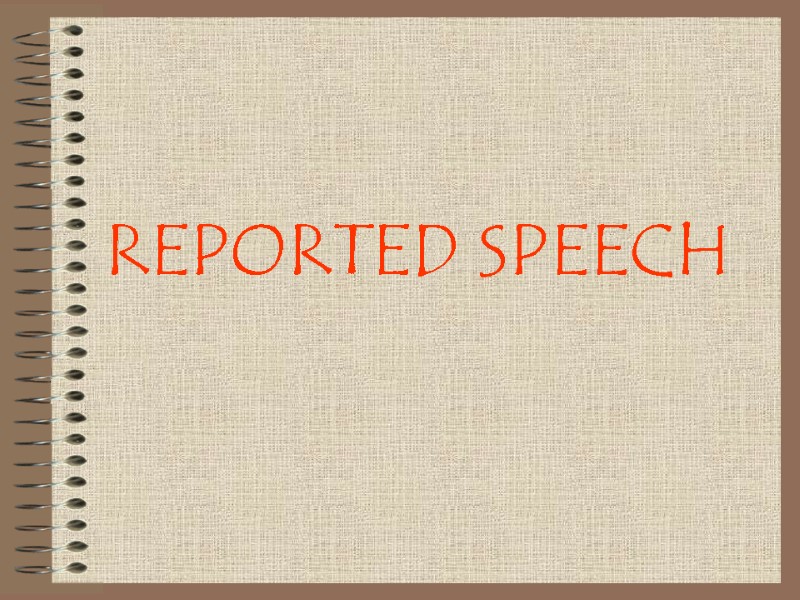
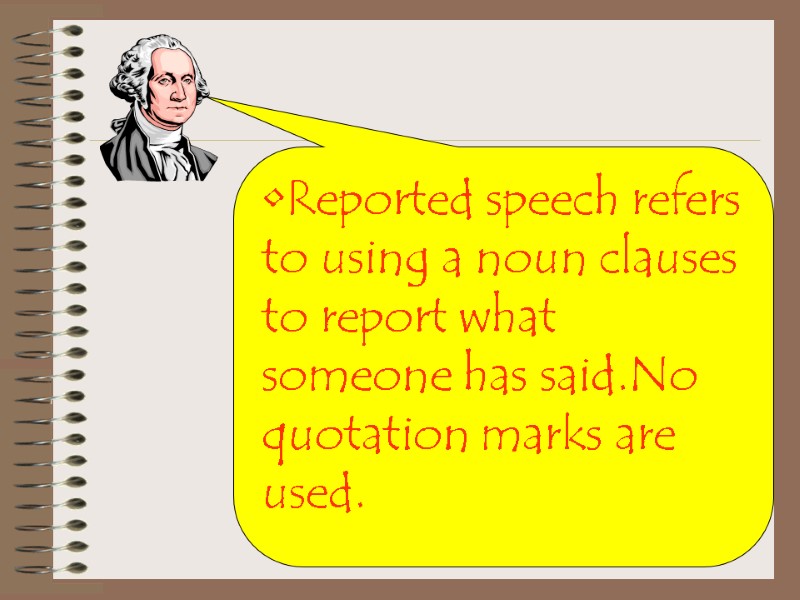
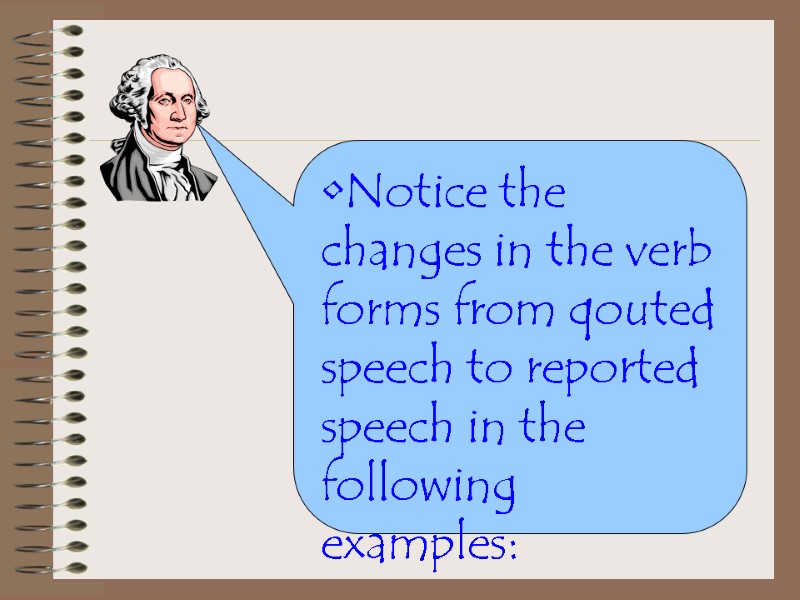
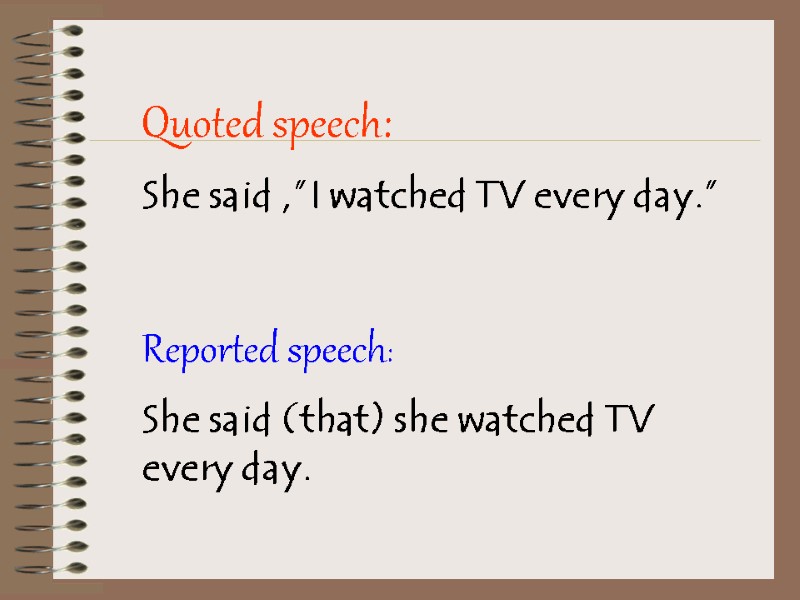
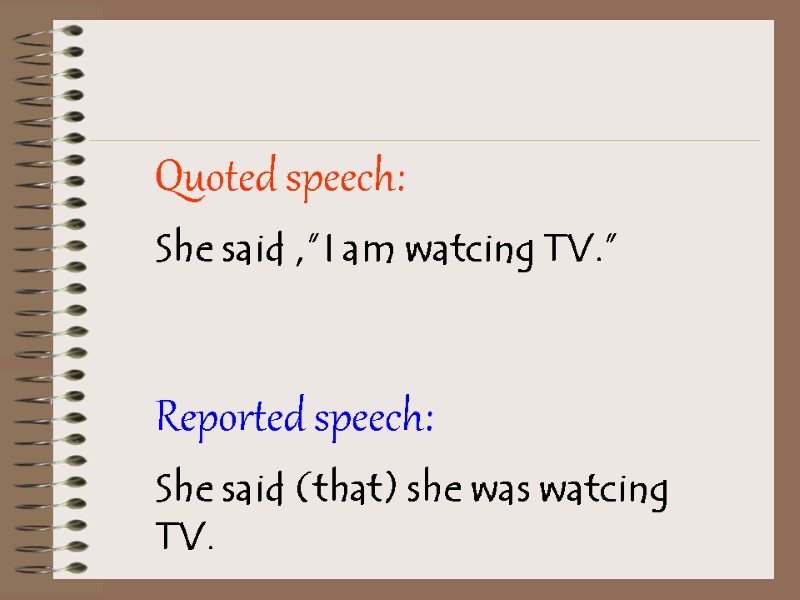
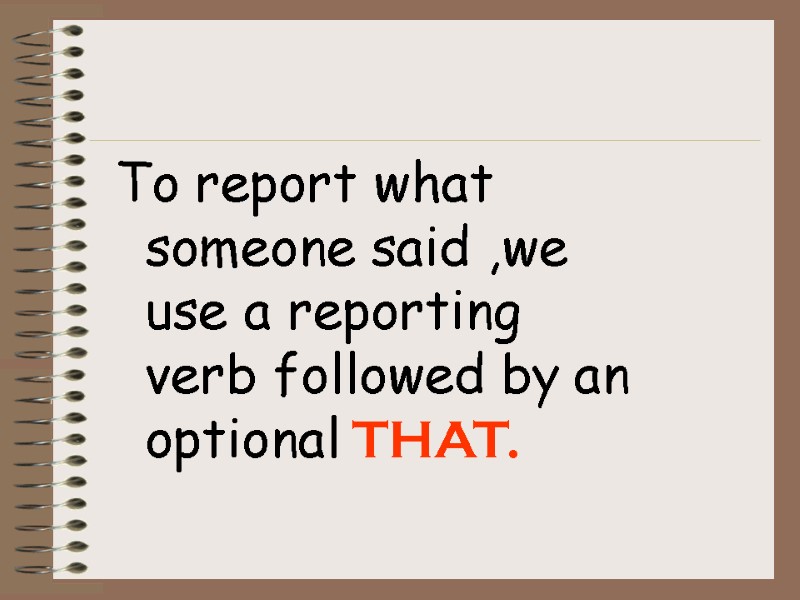
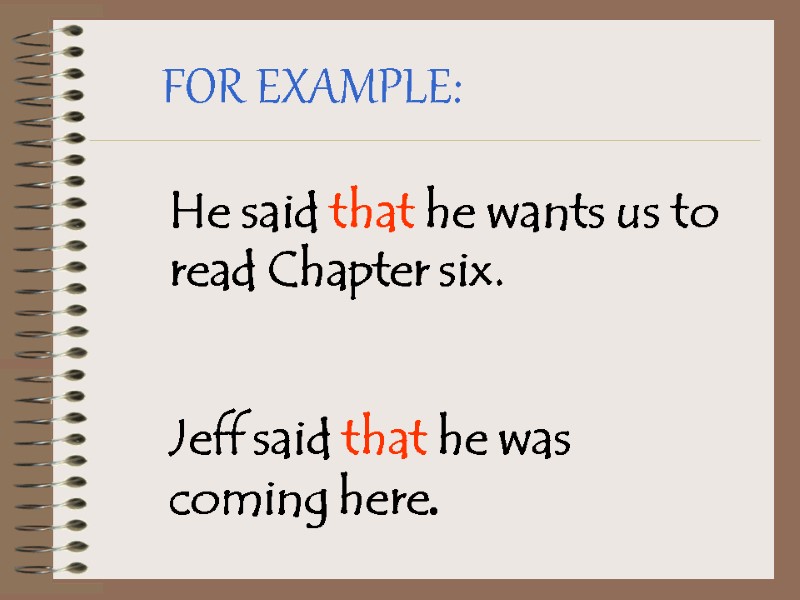
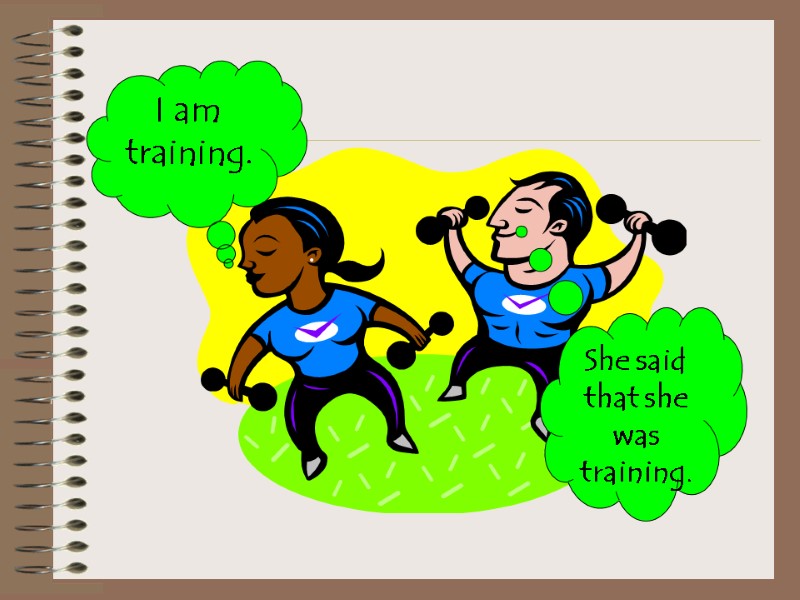
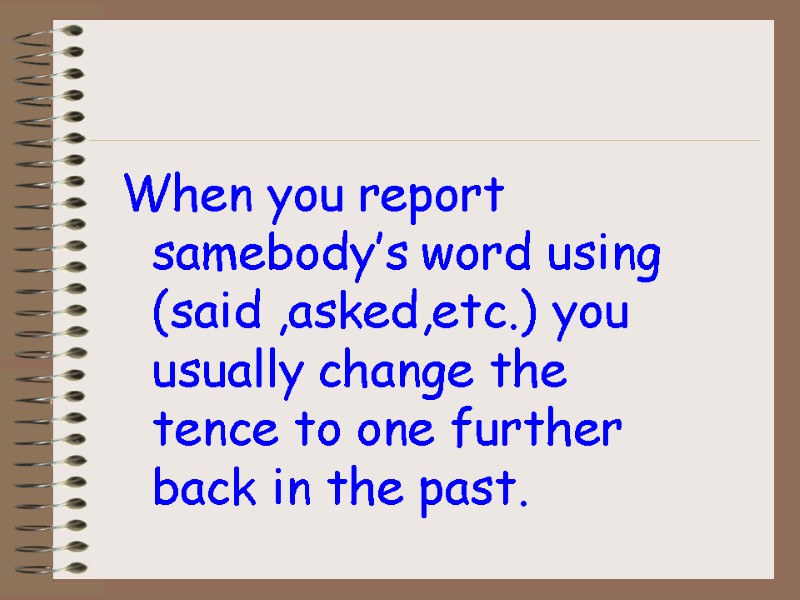
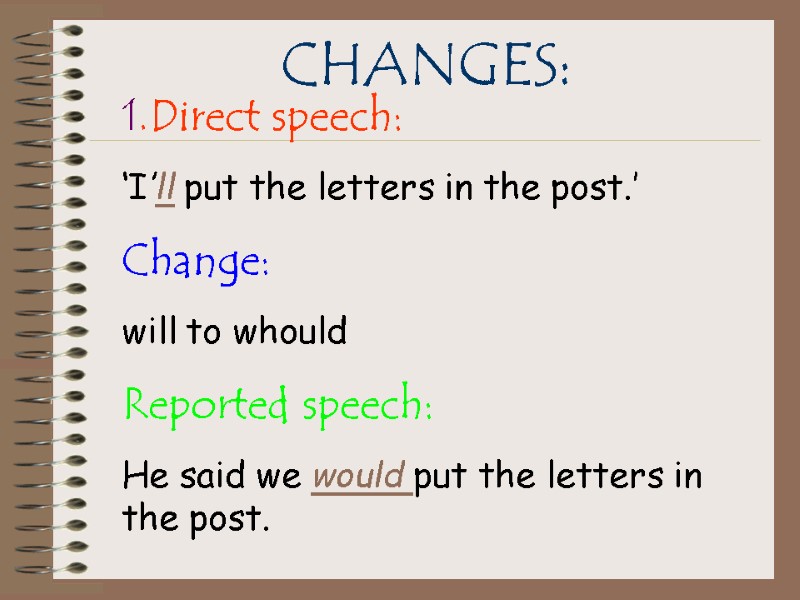
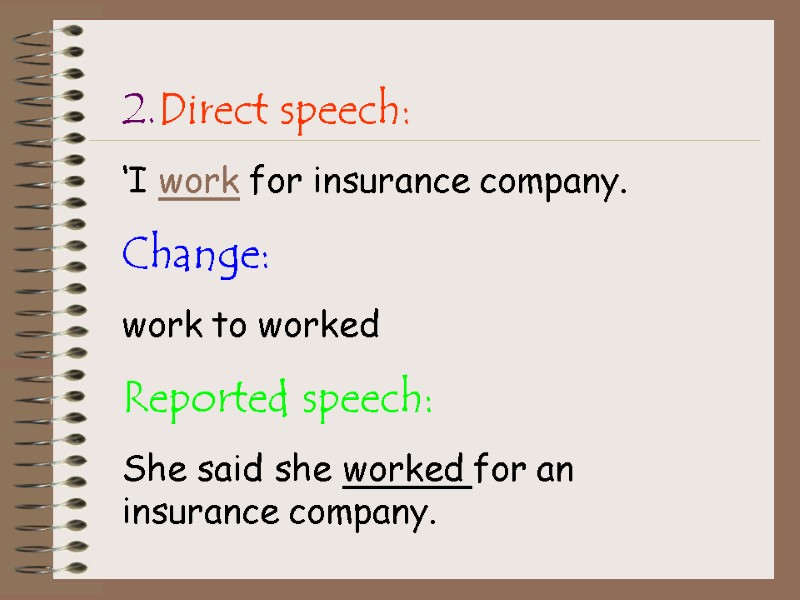
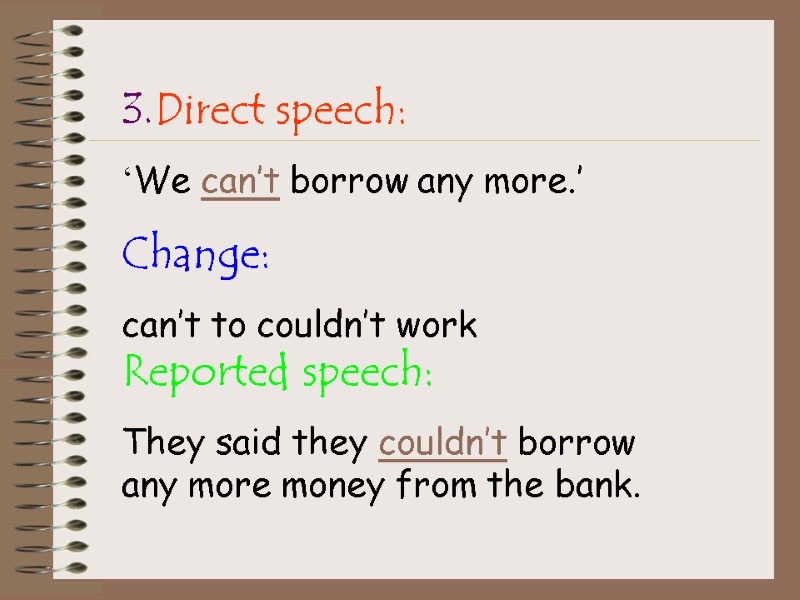
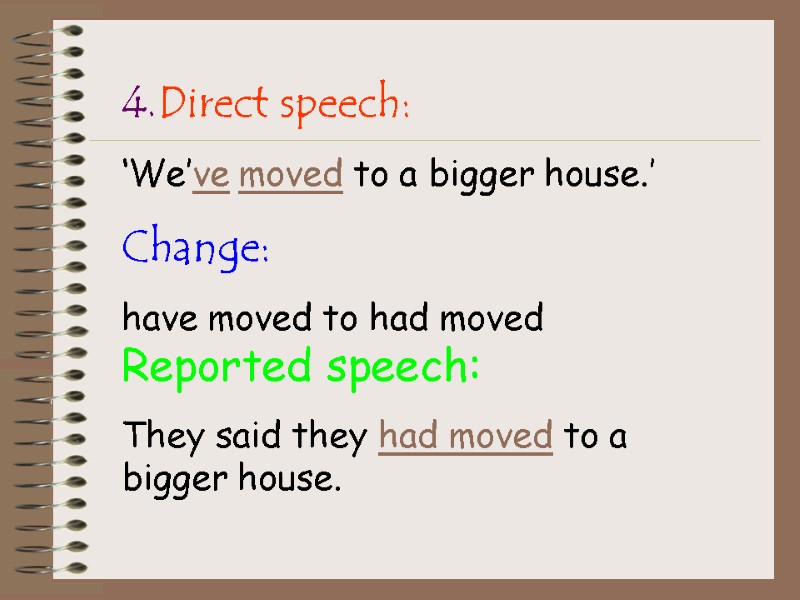
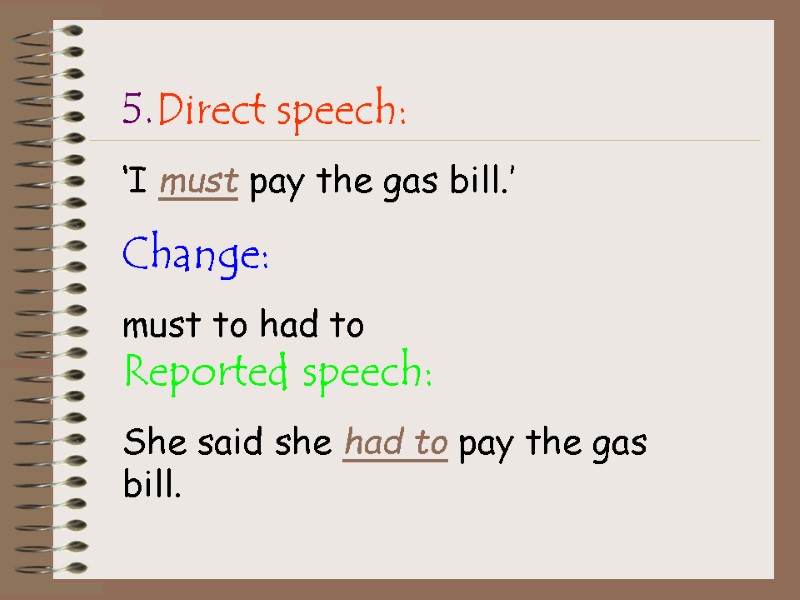
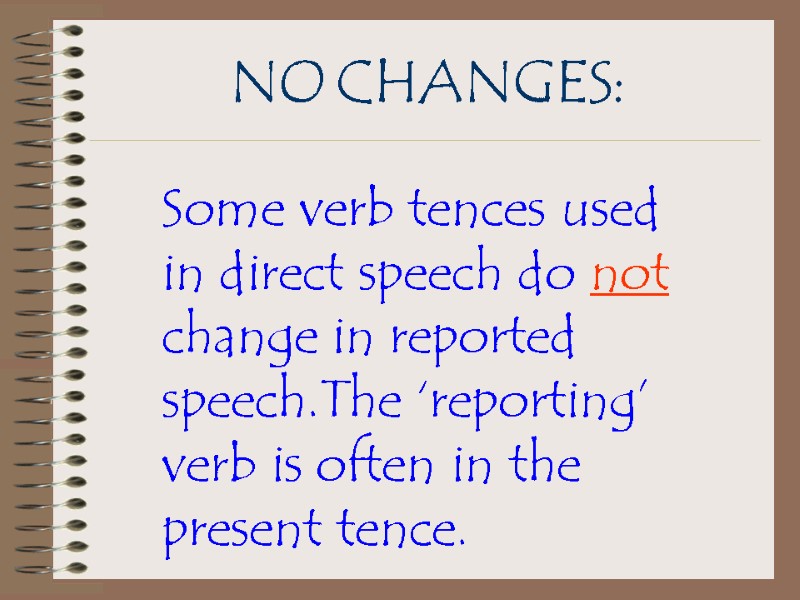
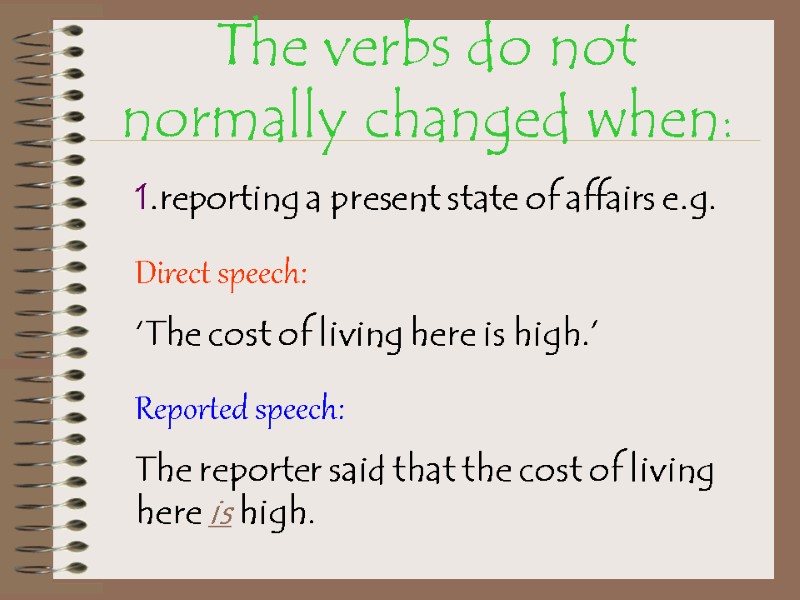
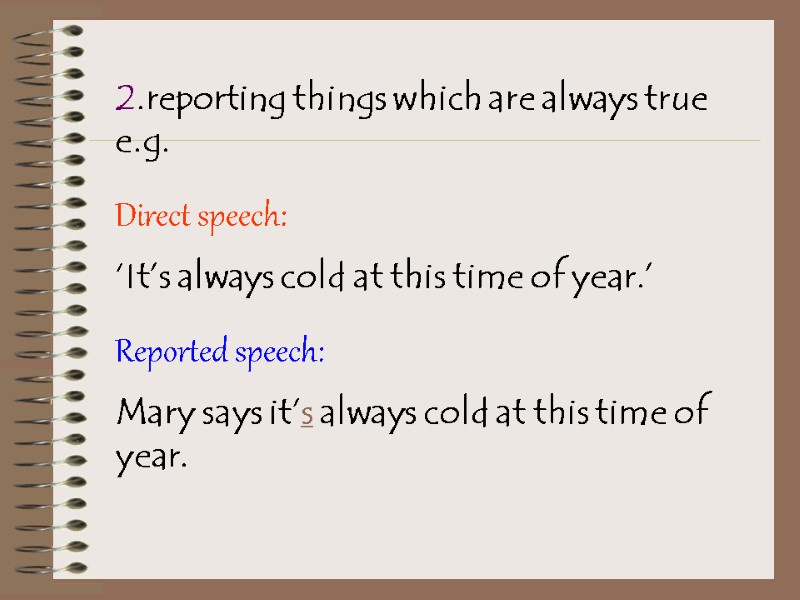
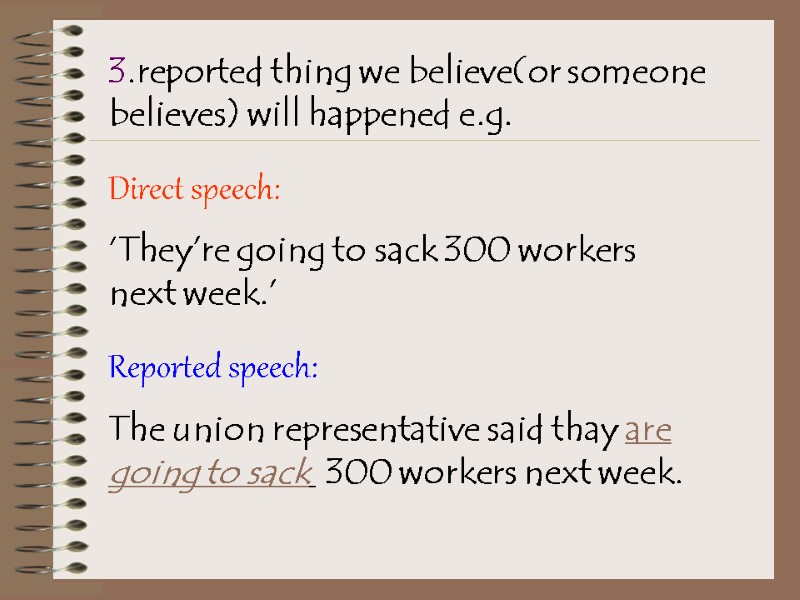
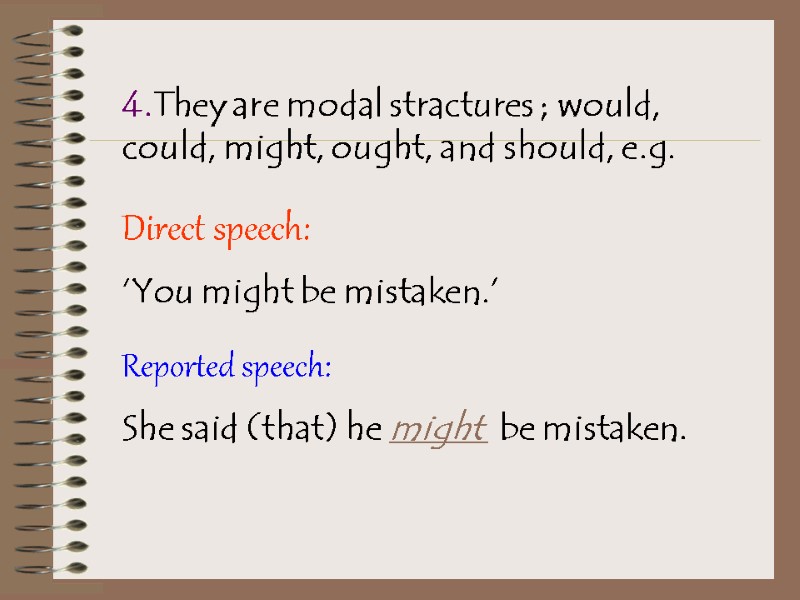
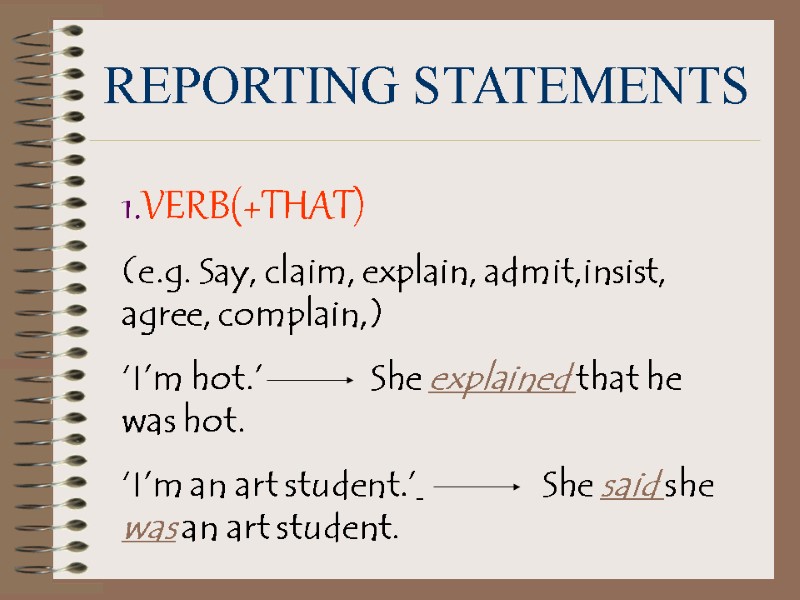
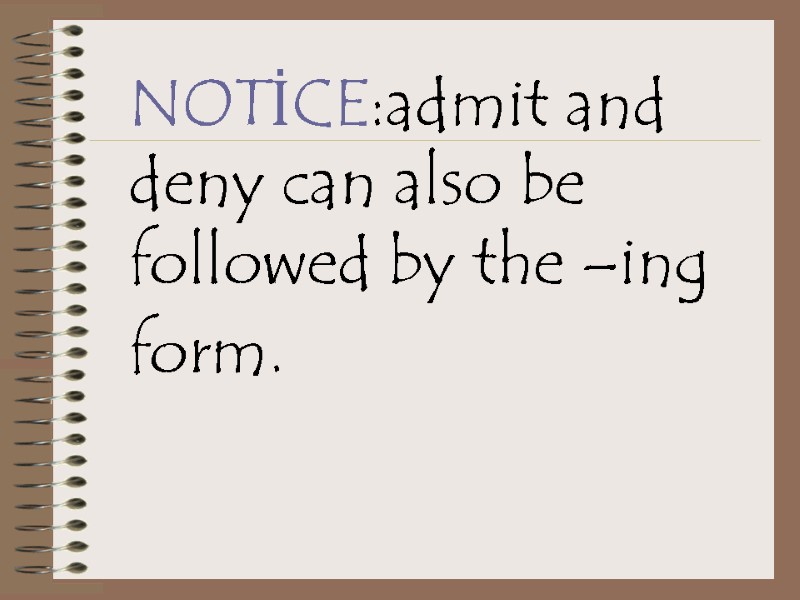
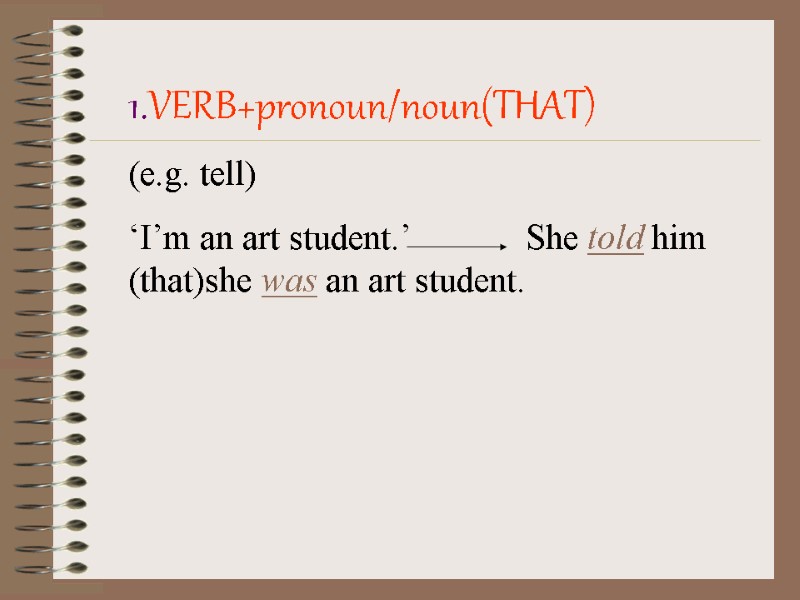
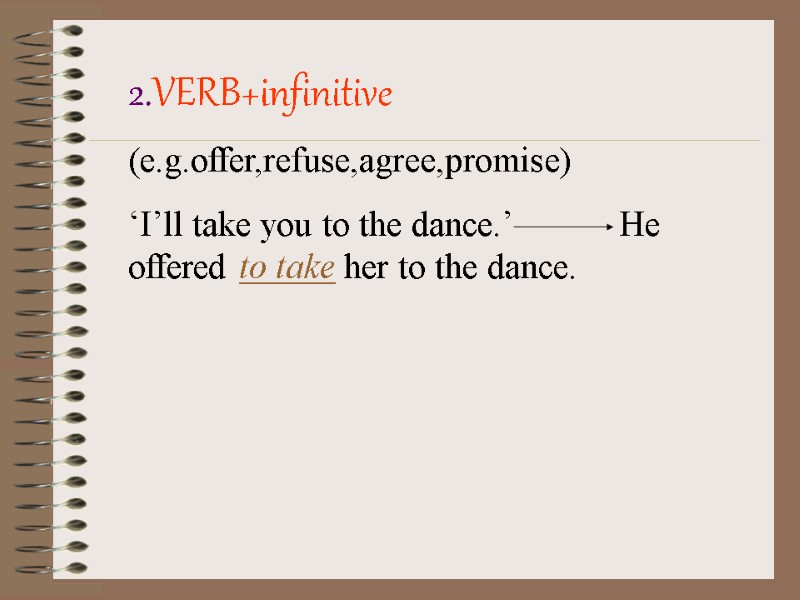
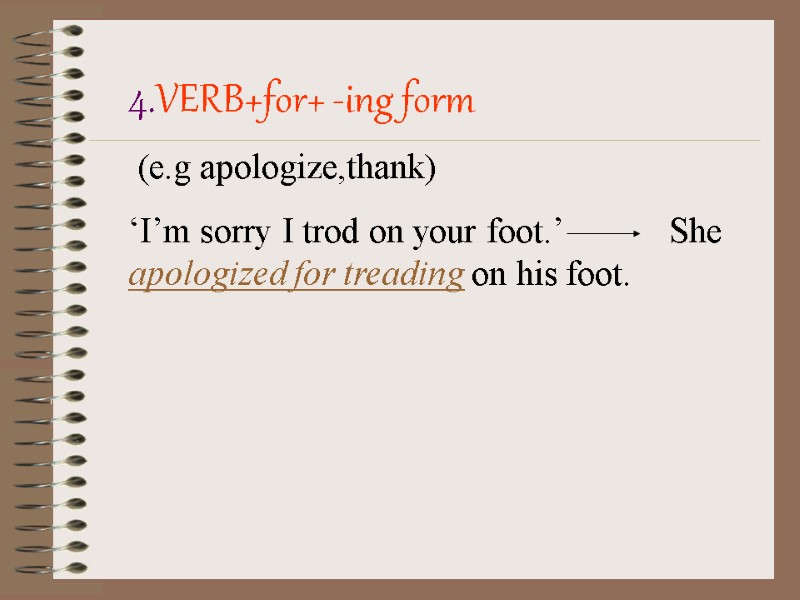
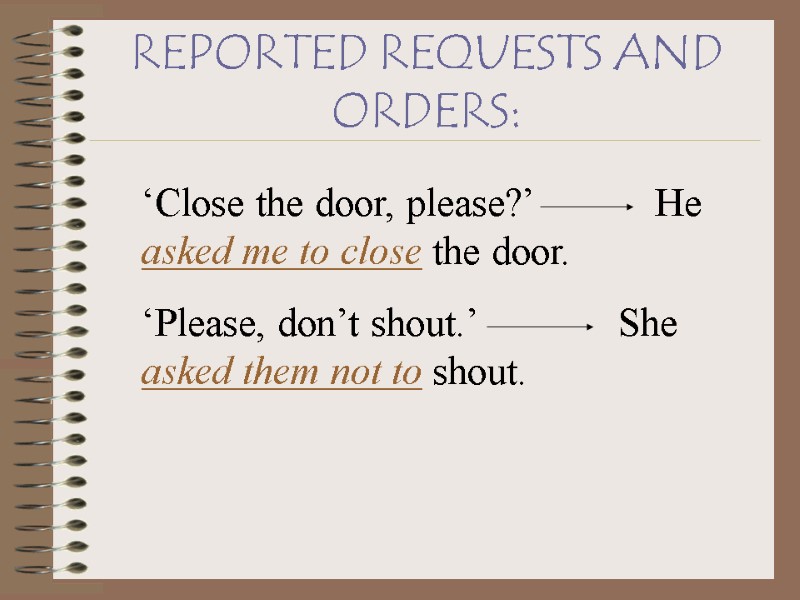
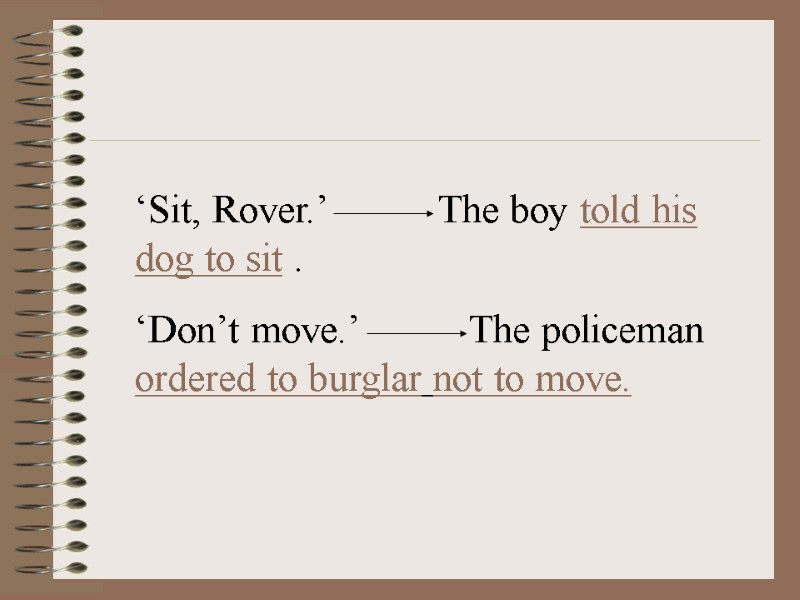
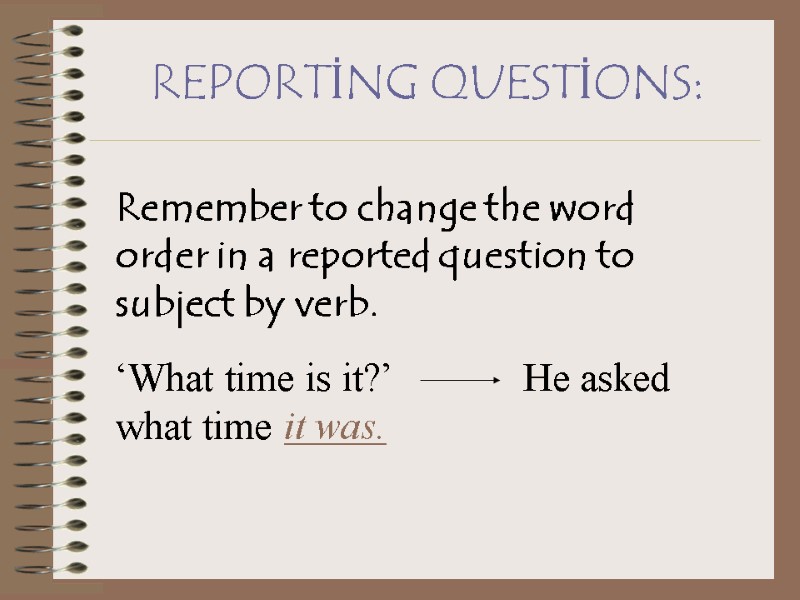
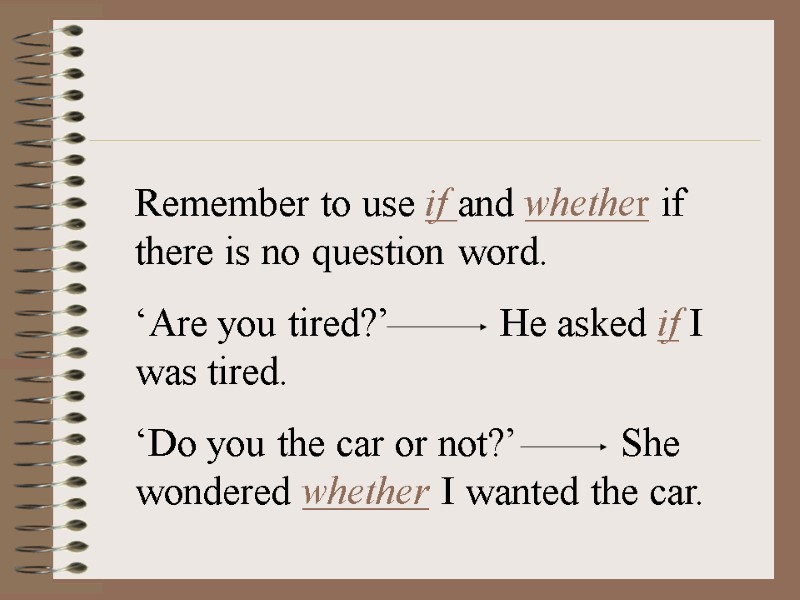
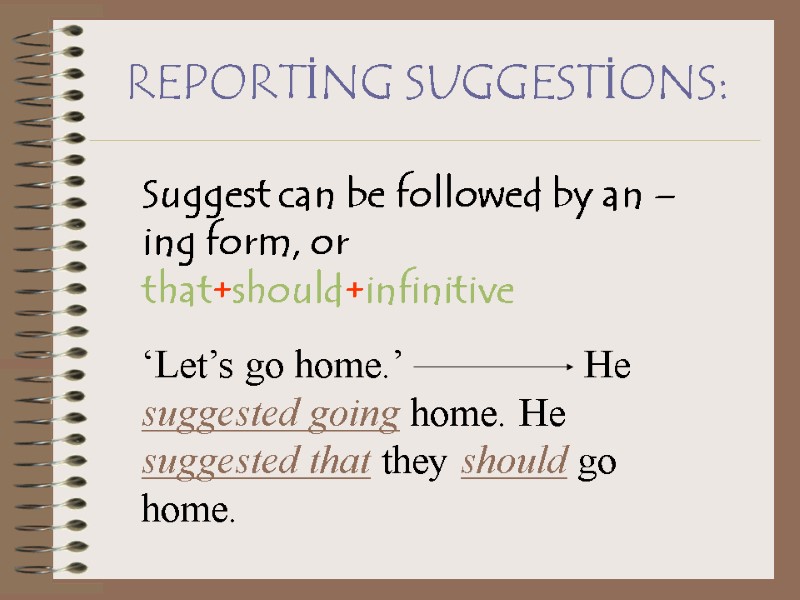
884-z-_reported_speech.ppt
- Количество слайдов: 29
 REPORTED SPEECH
REPORTED SPEECH
 Reported speech refers to using a noun clauses to report what someone has said.No quotation marks are used.
Reported speech refers to using a noun clauses to report what someone has said.No quotation marks are used.
 Notice the changes in the verb forms from qouted speech to reported speech in the following examples:
Notice the changes in the verb forms from qouted speech to reported speech in the following examples:
 Quoted speech: She said ,”I watched TV every day.” Reported speech: She said (that) she watched TV every day.
Quoted speech: She said ,”I watched TV every day.” Reported speech: She said (that) she watched TV every day.
 Quoted speech: She said ,”I am watcing TV.” Reported speech: She said (that) she was watcing TV.
Quoted speech: She said ,”I am watcing TV.” Reported speech: She said (that) she was watcing TV.
 To report what someone said ,we use a reporting verb followed by an optional THAT.
To report what someone said ,we use a reporting verb followed by an optional THAT.
 FOR EXAMPLE: He said that he wants us to read Chapter six. Jeff said that he was coming here.
FOR EXAMPLE: He said that he wants us to read Chapter six. Jeff said that he was coming here.
 I am training. She said that she was training.
I am training. She said that she was training.
 When you report samebody’s word using (said ,asked,etc.) you usually change the tence to one further back in the past.
When you report samebody’s word using (said ,asked,etc.) you usually change the tence to one further back in the past.
 CHANGES: 1.Direct speech: ‘I’ll put the letters in the post.’ Change: will to whould Reported speech: He said we would put the letters in the post.
CHANGES: 1.Direct speech: ‘I’ll put the letters in the post.’ Change: will to whould Reported speech: He said we would put the letters in the post.
 2.Direct speech: ‘I work for insurance company. Change: work to worked Reported speech: She said she worked for an insurance company.
2.Direct speech: ‘I work for insurance company. Change: work to worked Reported speech: She said she worked for an insurance company.
 3.Direct speech: ‘We can’t borrow any more.’ Change: can’t to couldn’t work Reported speech: They said they couldn’t borrow any more money from the bank.
3.Direct speech: ‘We can’t borrow any more.’ Change: can’t to couldn’t work Reported speech: They said they couldn’t borrow any more money from the bank.
 4.Direct speech: ‘We’ve moved to a bigger house.’ Change: have moved to had moved Reported speech: They said they had moved to a bigger house.
4.Direct speech: ‘We’ve moved to a bigger house.’ Change: have moved to had moved Reported speech: They said they had moved to a bigger house.
 5.Direct speech: ‘I must pay the gas bill.’ Change: must to had to Reported speech: She said she had to pay the gas bill.
5.Direct speech: ‘I must pay the gas bill.’ Change: must to had to Reported speech: She said she had to pay the gas bill.
 NO CHANGES: Some verb tences used in direct speech do not change in reported speech.The ‘reporting’ verb is often in the present tence.
NO CHANGES: Some verb tences used in direct speech do not change in reported speech.The ‘reporting’ verb is often in the present tence.
 The verbs do not normally changed when: 1.reporting a present state of affairs e.g. Direct speech: ‘The cost of living here is high.’ Reported speech: The reporter said that the cost of living here is high.
The verbs do not normally changed when: 1.reporting a present state of affairs e.g. Direct speech: ‘The cost of living here is high.’ Reported speech: The reporter said that the cost of living here is high.
 2.reporting things which are always true e.g. Direct speech: ‘It’s always cold at this time of year.’ Reported speech: Mary says it’s always cold at this time of year.
2.reporting things which are always true e.g. Direct speech: ‘It’s always cold at this time of year.’ Reported speech: Mary says it’s always cold at this time of year.
 3.reported thing we believe(or someone believes) will happened e.g. Direct speech: ‘They’re going to sack 300 workers next week.’ Reported speech: The union representative said thay are going to sack 300 workers next week.
3.reported thing we believe(or someone believes) will happened e.g. Direct speech: ‘They’re going to sack 300 workers next week.’ Reported speech: The union representative said thay are going to sack 300 workers next week.
 4.They are modal stractures ; would, could, might, ought, and should, e.g. Direct speech: ‘You might be mistaken.’ Reported speech: She said (that) he might be mistaken.
4.They are modal stractures ; would, could, might, ought, and should, e.g. Direct speech: ‘You might be mistaken.’ Reported speech: She said (that) he might be mistaken.
 REPORTING STATEMENTS 1.VERB(+THAT) (e.g. Say, claim, explain, admit,insist, agree, complain,) ‘I’m hot.’ She explained that he was hot. ‘I’m an art student.’ She said she was an art student.
REPORTING STATEMENTS 1.VERB(+THAT) (e.g. Say, claim, explain, admit,insist, agree, complain,) ‘I’m hot.’ She explained that he was hot. ‘I’m an art student.’ She said she was an art student.
 NOTİCE:admit and deny can also be followed by the –ing form.
NOTİCE:admit and deny can also be followed by the –ing form.
 1.VERB+pronoun/noun(THAT) (e.g. tell) ‘I’m an art student.’ She told him (that)she was an art student.
1.VERB+pronoun/noun(THAT) (e.g. tell) ‘I’m an art student.’ She told him (that)she was an art student.
 2.VERB+infinitive (e.g.offer,refuse,agree,promise) ‘I’ll take you to the dance.’ He offered to take her to the dance.
2.VERB+infinitive (e.g.offer,refuse,agree,promise) ‘I’ll take you to the dance.’ He offered to take her to the dance.
 4.VERB+for+ -ing form (e.g apologize,thank) ‘I’m sorry I trod on your foot.’ She apologized for treading on his foot.
4.VERB+for+ -ing form (e.g apologize,thank) ‘I’m sorry I trod on your foot.’ She apologized for treading on his foot.
 REPORTED REQUESTS AND ORDERS: ‘Close the door, please?’ He asked me to close the door. ‘Please, don’t shout.’ She asked them not to shout.
REPORTED REQUESTS AND ORDERS: ‘Close the door, please?’ He asked me to close the door. ‘Please, don’t shout.’ She asked them not to shout.
 ‘Sit, Rover.’ The boy told his dog to sit . ‘Don’t move.’ The policeman ordered to burglar not to move.
‘Sit, Rover.’ The boy told his dog to sit . ‘Don’t move.’ The policeman ordered to burglar not to move.
 REPORTİNG QUESTİONS: Remember to change the word order in a reported question to subject by verb. ‘What time is it?’ He asked what time it was.
REPORTİNG QUESTİONS: Remember to change the word order in a reported question to subject by verb. ‘What time is it?’ He asked what time it was.
 Remember to use if and whether if there is no question word. ‘Are you tired?’ He asked if I was tired. ‘Do you the car or not?’ She wondered whether I wanted the car.
Remember to use if and whether if there is no question word. ‘Are you tired?’ He asked if I was tired. ‘Do you the car or not?’ She wondered whether I wanted the car.
 REPORTİNG SUGGESTİONS: Suggest can be followed by an –ing form, or that+should+infinitive ‘Let’s go home.’ He suggested going home. He suggested that they should go home.
REPORTİNG SUGGESTİONS: Suggest can be followed by an –ing form, or that+should+infinitive ‘Let’s go home.’ He suggested going home. He suggested that they should go home.

